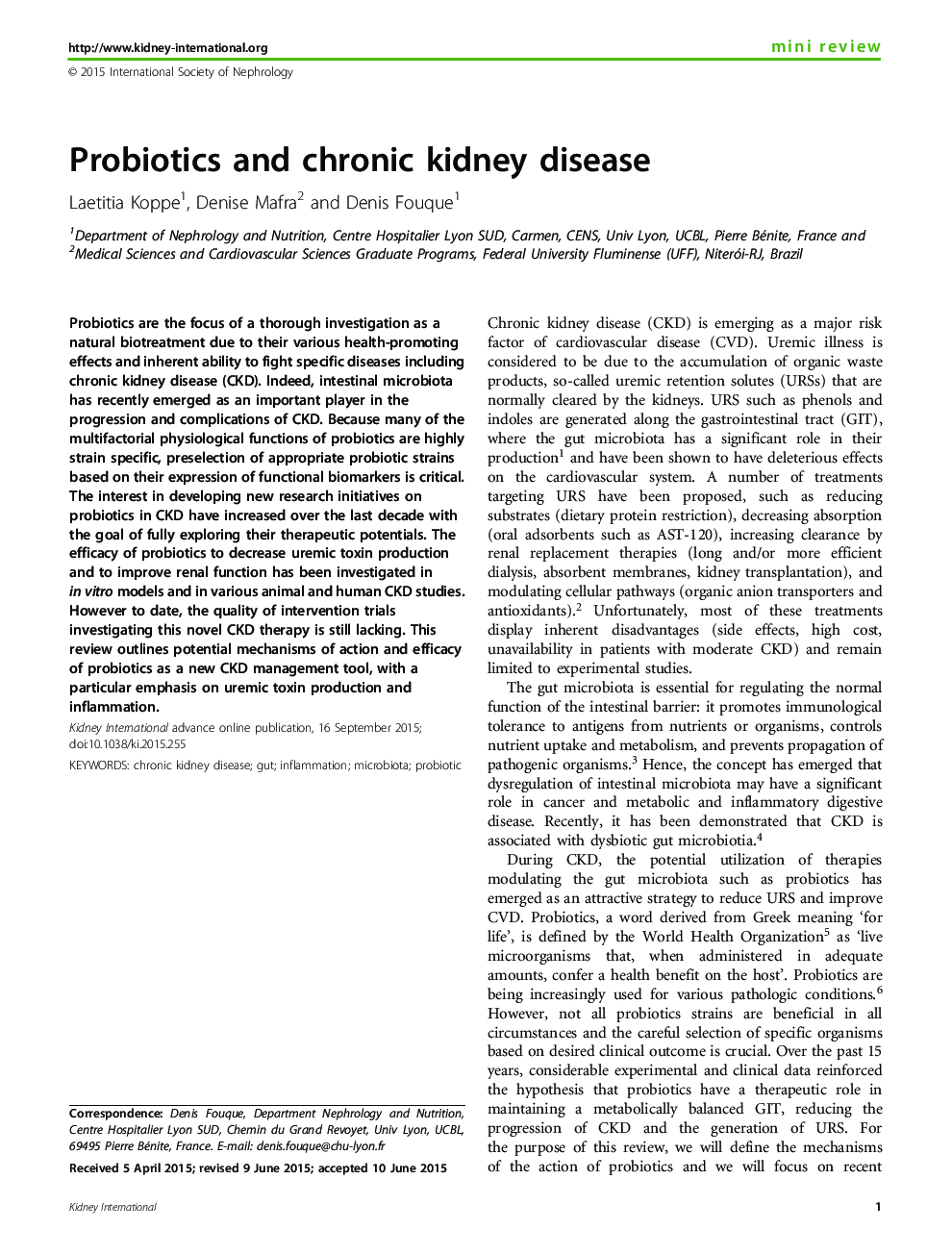| Article ID | Journal | Published Year | Pages | File Type |
|---|---|---|---|---|
| 6160440 | Kidney International | 2015 | 9 Pages |
Abstract
Probiotics are the focus of a thorough investigation as a natural biotreatment due to their various health-promoting effects and inherent ability to fight specific diseases including chronic kidney disease (CKD). Indeed, intestinal microbiota has recently emerged as an important player in the progression and complications of CKD. Because many of the multifactorial physiological functions of probiotics are highly strain specific, preselection of appropriate probiotic strains based on their expression of functional biomarkers is critical. The interest in developing new research initiatives on probiotics in CKD have increased over the last decade with the goal of fully exploring their therapeutic potentials. The efficacy of probiotics to decrease uremic toxin production and to improve renal function has been investigated in in vitro models and in various animal and human CKD studies. However to date, the quality of intervention trials investigating this novel CKD therapy is still lacking. This review outlines potential mechanisms of action and efficacy of probiotics as a new CKD management tool, with a particular emphasis on uremic toxin production and inflammation.
Related Topics
Health Sciences
Medicine and Dentistry
Nephrology
Authors
Laetitia Koppe, Denise Mafra, Denis Fouque,
